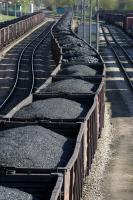Turner’s Falls, MA – Some townspeople in Turners Falls, this 19th-century mill village on the Connecticut River celebrated when workers began tearing down a shuttered coal-fired power plant this year.
First, they dismantled the towering boiler. In June, the smokestack that belched hundreds of thousands of tons of heat-trapping gases into the air came down. Last month, workers hauled away the five-story steel skeleton, leaving just a concrete silo as a reminder of this local icon of global warming.
But the demolition is hardly a victory in the battle against manmade climate change. Virtually every piece of the 2,600-ton plant is being shipped to Guatemala to be rebuilt, girder by girder, to power a textile mill that sells pants, shirts, and sportswear to the United States. It could last, and continue to pollute, for another 50 years.
Subscribe to our newsletter
Stay up to date with DeSmog news and alerts







